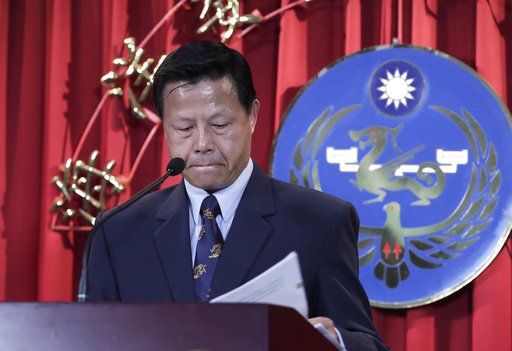In recent developments, Taiwan has reported that China warned its coast guard not to interfere with the detention of a Taiwanese fishing boat, in a move perceived as Beijing’s latest display of authority in the Taiwan Strait. The incident occurred amidst escalating tensions following the election of Taiwanese President William Lai Ching-te, whose party opposes unification with mainland China. Beijing also made a veiled threat to execute supporters of Taiwanese independence.
According to Liu Dejun, a spokesperson for China’s coast guard, the Taiwanese fishing vessel was detained for suspected illegal fishing activities. The boat allegedly breached a fishing ban in Chinese waters by fishing in a prohibited zone and using nets finer than permitted by Chinese regulations. Taiwan’s coast guard has urged the release of the boat and its crew, taken near the Taiwanese-controlled Kinmen island, although China has refused direct communication with Taiwan’s current government.
Hsieh Ching-chin, a spokesperson for Taiwan’s coast guard, stated that the fishing boat was not within Chinese waters when intercepted by Chinese agents and directed to a port in Fujian province. The vessel, named Dajinman 88, had a crew comprising Taiwanese and Indonesian members. Despite Taiwan dispatching three vessels to aid the boat, one was obstructed by Chinese boats and instructed not to intervene, Taiwanese authorities disclosed.
The escalation of the conflict prompted Taiwan to abort the pursuit to prevent further tensions. China asserts that Taiwan is part of its territory and must be brought under its control, leading to regular encounters between fishermen from both sides near Kinmen. Additionally, China has heightened military activities around Taiwan’s main island and adjacent territories of Kinmen and Matsu. This includes daily dispatches of warplanes and navy ships, interpreted as potential drills for a blockade or invasion.
China recently passed new regulations targeting “die-hard Taiwan independence separatists,” prompting Taiwan to caution its citizens against visiting the mainland, Hong Kong, and Macao. In response, a spokesperson for China’s Taiwan Affairs Office dismissed the threat as relevant only to a minority of Taiwanese, accusing Taiwan’s governing Democratic Progressive Party of misinterpretation to instill fear. Despite Beijing’s military threats and diplomatic isolation, most Taiwanese residents favor the island’s de facto independence status.
Historically, Taiwan split from China in 1949 after the Nationalists were defeated by the Communists on the mainland. The two territories have not signed a peace treaty, although interactions such as direct flights have expanded over the years. The situation remains tense, with China intensifying its military presence near Taiwan, while Taiwan’s citizens show strong support for maintaining their current status quo.


